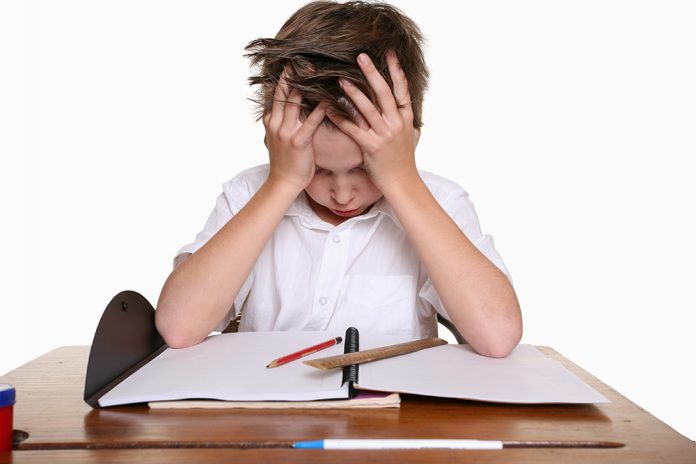This post is also available in: English हिन्दी (Hindi) বাংলা (Bengali)
Is your child falling back or acting out in his/her class? Is he/she having difficulty forming sentences or reading his/her textbook?
These may just be signs of a specific learning disability in your child. Instead of berating the child for being slow or difficult, parents need to address the possibility of a learning disability that the child is struggling with and unable to convey to parents or teachers, as it is difficult to fathom even for the child.
What are learning disabilities?

Learning disabilities are problems that cause a child to have trouble learning. For example, a child might have problems learning to read, write, or do math. Learning disabilities do not have anything to do with how smart a child is. Children with learning disabilities can be just as smart or smarter than other children their age. But they have brain differences that make it hard for them to learn, remember, and use information.
What are the symptoms of learning disabilities?
The main symptom is not being able to learn as well as other children. For example, a child with a learning disability might not be able to read, write, or do math as well as other children who are the same age or in the same grade.
Will my child need tests?
Yes, your child will most likely have a number of different tests. The tests check for any problems in the following areas:
- IQ – IQ stands for “intelligence quotient.” This test measures how well a person solves problems and understands things.
- Vision
- Hearing
- Speech
- Motor skills – These tests check how well a child can move large muscles (such as in the legs and arms) and small muscles (such as in the fingers).
The tests also include a review of the child’s school records and watching how he or she acts in a classroom. Different experts, including special education teachers, social workers, or guidance counselors, can do these tests.
A doctor might also test your child for health or emotional problems, such as worrying or feeling sad or depressed. Problems in those areas can affect how well a child can learn.
How are learning disabilities treated?

Learning disabilities are treated with “special education.” This is when a child learns from a teacher with special training. Special education uses different ways to teach children with disabilities. The methods depend on the learning disability. Examples include using pictures along with written or spoken words to explain things. Teachers might also give the child tips on how to remember things or help them stay organized. Children with learning disabilities might be given extra time to solve problems or take tests.
The earlier your child gets tested and treated for learning disabilities, the better he or she will do in school in the future.
Is there anything I can do to help my child?

Yes, the most important thing you can do is to spend time reading aloud with your child.
If your child has trouble in school, try to remember that the problem is not that your child is lazy. Your child’s brain has differences that make it hard for him or her to read, write or do math. This can make it hard to do all sorts of schoolwork. Other areas of the brain function normally, so that your child may be exceptional in other spheres like music, dance, creative arts and sports. Hopefully with the right treatment, and support from parents and teachers, your child can learn to work around his or her differences. Some degree of awareness and a willingness to seek help on behalf of the parents will go a long way!
By
Dr. Shreya Sharma

Dr. Shreya Sharma is a childcare expert and an M. D. in Pediatrics, she is currently a Pediatrician with fellowship in Pediatric Endocrinology, Mumbai.
This post is also available in: English हिन्दी (Hindi) বাংলা (Bengali)










